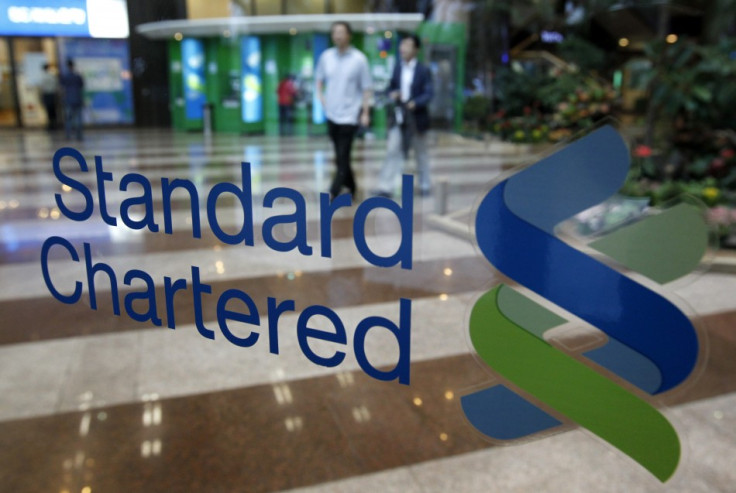Standard Chartered Shares Rise on Boosted Profits and Dividend

Shares in Standard Chartered rose to the highest level in nearly three months after posting a 9 percent gain in group income for the first half of this year and boosting its dividend.
The British-based lender, which earns the bulk of its revenues in emerging markets and derives over half of its revenue from Asia, reported first half profit at $3.95bn (£2.51bn) and income at $9.51bn, representing its tenth consecutive session for profit growth.
The group said it has "multiple growth engines" as 20 of its markets delivered double digit growth in income.
"While China has experienced a slowdown, we have good business momentum," said the group. "We have delivered 22 percent income growth during the first half and have no exposure to local government investment vehicles and our corporate real estate exposure is minimal."
It added that Hong Kong also finished the first half of this year strongly, after the group achieved double digit income growth over the comparable period in 2011, while Singapore delivered a 6 percent increase and Korea income was up 13 percent.
Standard Chartered shares rose more than 2.5 percent in early London trading Wednesday to change hands at 1,500 pence each. The stock has gained around 6.5 percent so far this year and has closed at a higher level only once since 23 April.
Standard Chartered also reported an impressive well diversified, strongly capitalised and primarily deposit funded balance sheet and already met Basel 3 capital requirements with a core tier 1 capital ratio of 11.6 percent.
"We continue to benefit from being the only major international bank to be upgraded by all three rating agencies since the onset of the financial crisis," said the group. "Asset quality is good, although we remain watchful given the strongly challenged macro-economic environment. We have limited refinancing requirements over the next few years."
In June this year, its forecast of pre-tax profit growth of less than 10 percent for the first half of 2012, after it warned that slowing markets in its key Asia markets along with weakening local currencies pressured the bank's bottom line, it said in June.
The London-based group, which communicates quarterly targets and detailed earnings twice a year, said in a statement in June that it still maintains its previous forecasts of income growing at a "high single digit" pace driven by consumer and wholesale-banking operations but its results beat these statements.
In Standard Chartered's half yearly results statement, the group said the diversity of its income from a range of countries, products and services continued to drive growth and its emerging markets presence allowed it to remain "robust".
Pressure Points
Over the last year, Standard Chartered highlighted areas that it was facing significant pressure from. While Standard Chartered did not provide exact numbers in June, due to its reporting procedure, the group highlighted India, was putting pressure on its earnings for the first half of this year.
"Income in India remains muted in the first half, impacted by continued weakness of the Indian Rupee against the USD," said Standard Chartered. "On a constant currency basis, income is expected to grow at a mid-single digit rate in the first half. The business also continues to deliver good double digit growth in network revenues."
However, the group's results revealed that India income fell 12 percent in the first half "reflecting exchange rates and a difficult operating environment, albeit income is up 2 percent on a constant currency basis."
The group also warned the markets that although it had fared well compared to its other banking counterparts, Standard Chartered faces a number of challenges.
"The bank is in good shape and our businesses have good momentum but we are not at all complacent about the external challenges," said the group. "The global economy is fragile, with the risks to the downside. Politics and regulatory change continue to pose huge challenges, eroding our economics and creating obstacles to growth."
"We are certainly not immune to such factors. For example, the economic and political paralysis in India has slowed the business and the decline in the rupee has resulted in a considerable FX drag. But our enthusiasm for India, and our commitment to investing in the market remains undiminished, given the strength of the longer-term growth story. In India as elsewhere, we need to strike the right balance between tactically responding to immediate developments and keeping a view on the longer-term prize. This is a critical challenge for the management team, something we are continuously focused on and dynamically fine tuning," it added.
© Copyright IBTimes 2025. All rights reserved.






















